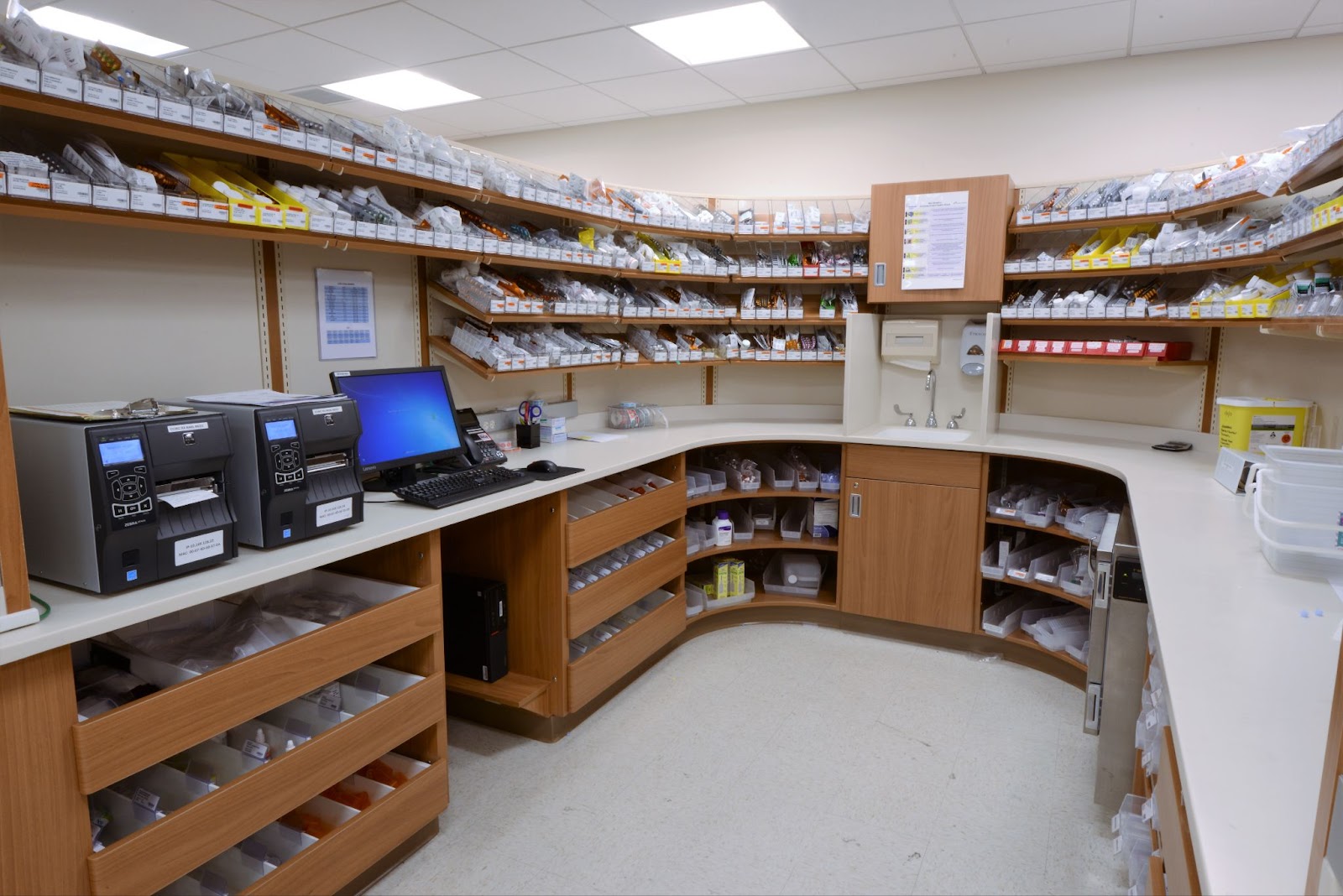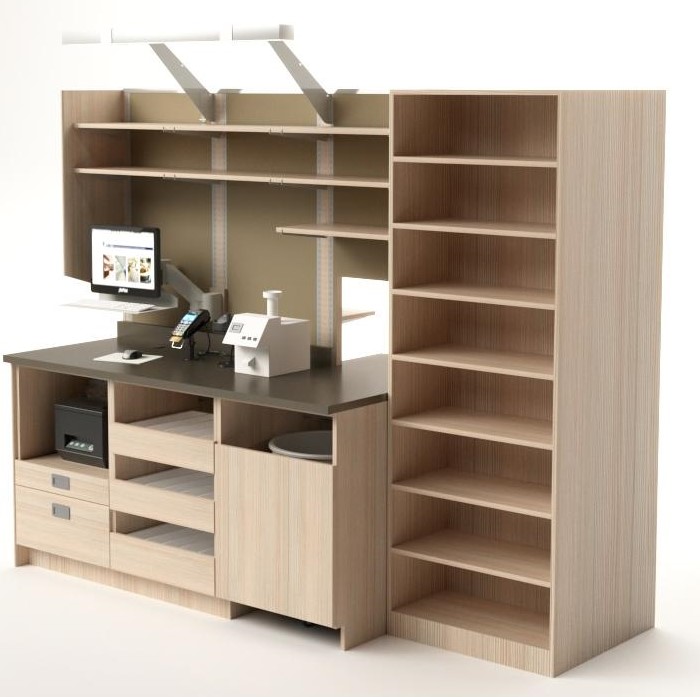6 Ways Automation Equipment is Revolutionizing Central Fill Pharmacies
When analyzing the state of modern healthcare, efficiency and accuracy are more paramount than ever, especially when it comes to helping patients get the medication they need to live healthier lives.
One of the sectors of healthcare where this is most apparent is the bustling working environment of central fill pharmacies. Recent research has found that the number of prescriptions dispensed in the U.S. has risen from nearly 3.95 billion in 2009 to over 6.7 billion in 2022.
With the ever-increasing demand for prescription medications, pharmacies face the challenge of managing large volumes of orders while maintaining stringent quality standards. Enter automation equipment – the unsung hero transforming the landscape of central fill pharmacies.
Gone are the days of manual sorting and filling; automation equipment has emerged as the cornerstone of streamlined operations in central fill pharmacies. Designed with precision and engineered for efficiency, modular central fill casework is revolutionizing how pharmacies can operate and handle the sheer volume of patients and prescriptions.
Here’s an overview detailing the rise of central fill pharmacies and how automation equipment is changing how we design and install healthcare casework.
The Evolution of Central Fill Pharmacies
Central fill pharmacies have undergone a remarkable evolution in recent years, propelled by technological advancements and changing healthcare dynamics. Traditionally, pharmacies operated on a decentralized model, with each location handling its own prescription fulfillment. However, as the demand for prescription medications surged and healthcare systems sought to improve efficiency and cost-effectiveness, central fill pharmacies emerged as a viable solution.
Central fill pharmacies consolidate prescription processing and medication dispensing into centralized facilities, serving as hubs that support multiple retail or outpatient pharmacies. This shift towards centralization has been driven by several factors, including increased prescription volume, regulatory compliance, and a renewed industry focus on cost-effective operations and enhanced patient care.

Increased Prescription Volume
The rising demand for prescription medications, fueled by factors such as aging populations and the prevalence of chronic diseases, has put pressure on traditional pharmacy models. With custom casework solutions, central fill pharmacies can efficiently handle large volumes of prescriptions, leveraging automation equipment to streamline operations and meet growing demand.
Cost-Effective Operations
By centralizing prescription processing, pharmacies can achieve economies of scale and reduce overhead costs associated with individual locations. Automation equipment plays a crucial role in driving cost-effective operations, minimizing labor expenses, and optimizing workflow efficiency.
Enhanced Patient Care
Central fill pharmacies enable pharmacists to focus more on patient care rather than administrative tasks. With automation equipment handling routine prescription filling, pharmacists can provide comprehensive medication therapy management and counseling services, ultimately improving patient outcomes.
Regulatory Compliance
The regulatory landscape governing pharmacy operations continues to evolve, with stringent standards in place to ensure patient safety and medication quality. Custom pharmaceutical casework and automation equipment are essential components of modern central fill pharmacy designs, helping pharmacies meet regulatory requirements and maintain compliance with industry standards.
Implementing Automation Equipment in Pharmaceutical Casework
The evolution of central fill pharmacies underscores the importance of automation equipment and custom pharmaceutical casework in modern pharmacy design. By embracing these technological innovations, pharmacies can enhance efficiency, improve patient care, and position themselves for long-term success in an increasingly competitive healthcare landscape.
Pharmaceutical casework is tailored to the specific needs of modern central fill pharmacies, providing versatile storage solutions, ergonomic workstations, and seamless integration with automation equipment.
Automation equipment complements custom casework by automating repetitive tasks, minimizing errors, and improving medication accuracy. From robotic dispensing systems to automated prescription labeling and packaging machines, automation technology enhances productivity and streamlines the prescription fulfillment process in central fill pharmacies.
Together, pharmacy casework solutions and automation equipment can reshape central fill pharmacies in many ways that pave the way for improved productivity and patient care.
1. Optimized Workflow Management
Automation equipment optimizes workflow management by streamlining repetitive tasks such as medication sorting, labeling, and packaging. With modular central fill casework specifically engineered for each unique task, pharmacies can minimize errors and maximize efficiency throughout the prescription fulfillment process.
From modular shelving systems to automated dispensing cabinets, custom casework optimizes space utilization and enhances workflow efficiency, laying the foundation for successful pharmacy operations.
2. Enhanced Medication Accuracy
Precision is paramount in the pharmaceutical industry, and automation equipment delivers unparalleled accuracy in medication dispensing. Advanced technologies embedded within central fill casework ensure precise measurements and dosages, reducing the risk of errors and enhancing patient safety.
3. Increased Productivity
By automating time-consuming tasks, such as inventory management and prescription refills, automation equipment boosts productivity in central fill pharmacies. Pharmacists and pharmacy technicians can focus their expertise on patient care rather than mundane administrative duties, resulting in faster turnaround times and improved customer satisfaction.

4. Improved Inventory Control
Effective inventory management is crucial for maintaining adequate stock levels and minimizing waste. Automation equipment integrates sophisticated inventory control systems into central fill pharmacies, enabling real-time monitoring of medication levels and expiration dates. This proactive approach helps pharmacies optimize inventory turnover and reduce costs.
5. Streamlined Compliance
Compliance with regulatory standards is a top priority for pharmacies, and automation equipment simplifies the process of adhering to stringent guidelines. Central fill casework is designed with built-in safety features and quality control measures to ensure compliance with industry regulations, safeguarding both patients and pharmacies from potential liabilities.
6. Adaptability to Scalability
As pharmacies expand their operations to meet growing demand, scalability becomes a key consideration. Automation equipment offers modular solutions that can be easily scaled to accommodate evolving needs.
Whether adding additional dispensing modules or integrating new technologies, central fill pharmacies can adapt seamlessly to changes in volume and complexity.
Custom Pharmacy Casework Solutions From R.C. Smith
Automation equipment is revolutionizing central fill pharmacies by optimizing workflow management, enhancing medication accuracy, increasing productivity, improving inventory control, streamlining compliance, and offering adaptability to scalability.
As pharmacies embrace these technological advancements, they can continue positioning themselves for success in an increasingly competitive healthcare landscape. For all your pharmaceutical casework needs, R.C. Smith is here to help design custom casework systems that are completely unique to your pharmacy’s functionality and workspace needs.
Contact us today to experience firsthand the transformative power of automation equipment in central fill pharmacies and elevate your pharmacy operations to new heights of efficiency and excellence!